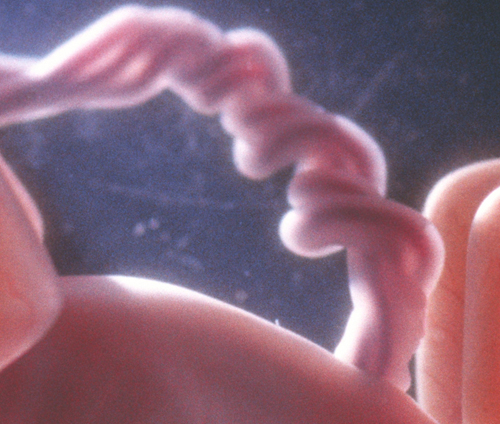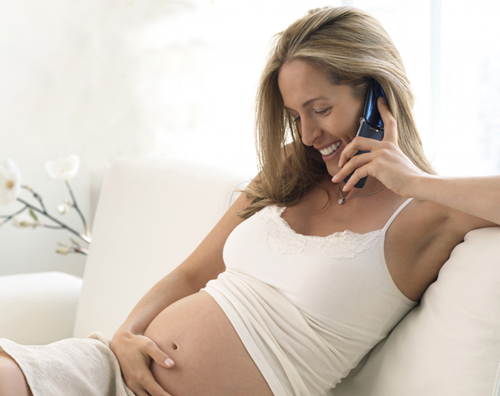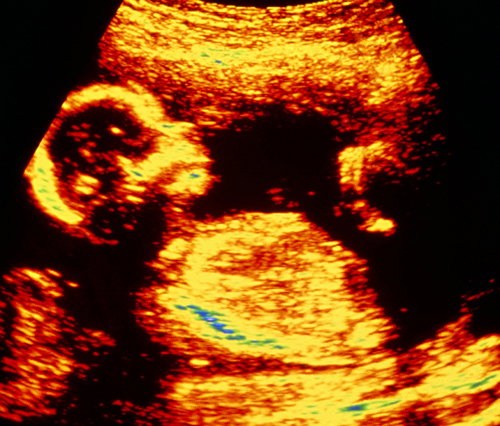You are 18 Weeks and 3 Days 151 days to go…
Wanting to protect your baby is a natural maternal instinct and it’s likely to have started already.
Your baby today
Coiling is now well established in the umbilical cord. This
coiling protects the cord from kinking and from pressing on the
umbilical arteries and vein. The coils help ensure that there is a
continuous flow of blood both to the placenta and also back to the baby.

It’s understandable that you want your baby to have the best start in life, but this may lead you to unnecessary anxiety about his health and well-being.
You may find
yourself worried about things that previously did not bother you. For
example, you may use a computer regularly and only now become concerned
about the radiation it might produce (see as a matter of fact).
Try to relax and keep
concerns in perspective; remember that your baby is very resilient and
well-protected inside the uterus. If you have concerns about lifestyle
issues or how your baby is developing, your doctor can provide
information and reassurance.
Meanwhile, you can
take good care of yourself by eating well, exercising regularly, and
attending all your prenatal appointments.
Taking care of your baby will become your main concern and there’s unlikely to be a day that goes by where you don’t consider your baby’s well-being.

There is no significant radiation from a computer that can affect an unborn baby.
Many studies have
been done to examine the low-level radiation that computers and laptops
emit, but they’ve found computers to be safe.
… doctor
| Q: |
What are the risks if I gain too much weight?
|
| A: |
Pregnant women who overeat tend to have larger babies, which
can make the delivery more difficult (the baby is more likely to get
stuck during the birth) and increase the likelihood of having a cesarean
section.
Pregnant women who are overweight are also more likely to experience health complications, such as gestational diabetes and preeclampsia. Their children may be at greater risk of becoming diabetic and being obese in later life.
Most of the research seems to focus on pregnant women who have gained more than 40 lb (18 kg).
|
You are 18 Weeks and 4 Days 150 days to go…
There’s no harm in encouraging your baby to move to increase the likelihood of you feeling his wiggles.
Your baby today
This is a side view ultrasound scan with the baby’s head in the
top left. Your baby appears completely human with all fingers and toes
fully developed. The skin is now covered with lanugo, fine protective
hair.

If you’re waiting to feel your baby’s first movements,
be patient. Although it’s reassuring to feel him wiggling around,
becoming stressed about it won’t be good for either of you. Remember,
many pregnant women—first-time moms especially—don’t feel those first
flutterings until 18 to 20 weeks or later. Also remember that while
you’re awake, your baby spends a lot of time sleeping.
There are a few ways
you can try to stimulate your baby into action—the more he moves, the
more chance there is that you’ll feel it. First of all, stop and relax.
If you’ve been busy all day, you may have been distracted and not felt
your baby’s movements. Keeping still may also waken him, since he isn’t
being “rocked” within your uterus.
Try playing loud music
to him, which will not only wake him, but also encourage him to respond.
Some women report that their unborn babies “kicked” to a rhythm!
It may also help to lie
down on your side, with your belly supported. Doing this may stimulate
your baby to move, as he changes his position to accommodate yours. If
all else fails, have a sweet, icy cold drink, which may do the trick.
You will probably not be able
to feel your baby move yet, but he is incredibly active inside your
uterus. Somersaults and stretches are part of his daily routine, as are
thumb and toe sucking. Your baby moves when awake and asleep: he has no
control over his movements at this stage. Ultrasound scans reveal a huge
range of movement in between inactive periods.
… Doctor
| Q: |
My baby seems to “jump” when he hears loud noises—is this likely or am I imagining it?
|
| A: |
Yes, this is common. Research has shown that a baby can react
to sounds in the uterus from as early as nine weeks’ gestation.
Premature babies
react to sounds with a “startle reflex,” so this provides strong
evidence that babies in the uterus will hear and react to loud sounds,
too, possibly with sudden movements. |